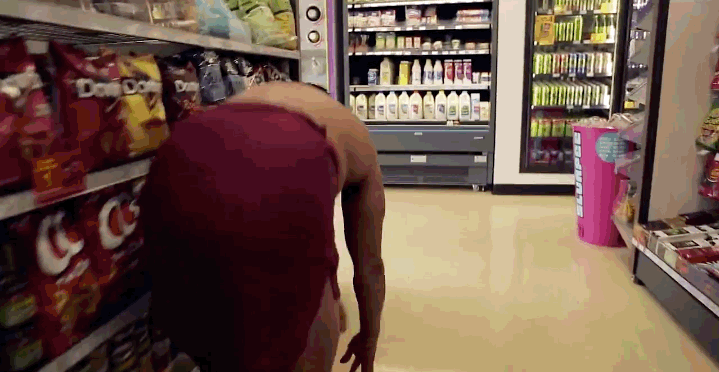Viewers are calling a 7-Eleven advert "incredibly racist and offensive," though the Australian advertising watchdog has dismissed the complaint.
The short video shared on Slurpee Australia's Facebook page starts with two boys standing at the Slurpee stand in a convenience store. All is calm until a Maori warrior crouching behind the crisps aisle leaps up and runs at the boys, dressed only in a red blanket.
The Maori then screams and waves his arms in what is intended to be a performance of the Haka - a traditional Maori dance
Maori tattoos are even replicated by what appears to be a black marker pen.
Presumably the teenagers were told to look intimidated, but, in reality, they just look like they find it funny.
#FlavourFest Kiwi BerryIs your Slurpee game BERRY STRONG? This week's #FlavourFest Flavour packs a MASSIVE PUNCH
Posted by Slurpee Australia on Wednesday, 18 November 2015
An official complaint was made by a New Zealander of Maori descent, who worried that the clip could "propagate a racist attitude towards not only Maori, but indigenous people and cultures more broadly."
"The awkward performance depicts Maori people as illiterate savages who simply grunt and yell their way through their own native songs and dances," the complainant said.
"Put simply, the fact that a non-Maori organization is cheaply exploiting (not even respectfully appropriating) my culture and customs for [its] own commercial gain is utterly offensive and unethical."
7-Eleven responded that it had "carefully considered" the Australian Association of National Advertisers' code of ethics in devising the ad.
"The man's appearance is reminiscent of a Maori warrior however, his depiction is not in any way intended to ridicule or portray Maori people in a negative manner," 7-Eleven added.
In the end, the Australian Advertising Standards Board decided to dismiss the complaint, despite a minority of the Board saying that the clip "trivializes" an "important cultural symbol" and is "demeaning."
They explained that the "Maori man is depicted in a positive manner and appears in control of the situation."








